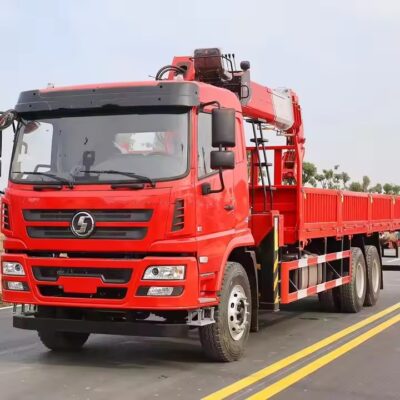Engine scuffing in road wrecker trucks is a critical issue that can lead to significant mechanical damage and necessitate extensive repairs. Understanding the causes and preventive measures is essential to maintain the engine’s health and performance.
What is Engine Scuffing?
Engine scuffing is characterized by noticeable longitudinal scratches and gouges within the piston rings’ movement range on the cylinder wall. In severe cases, this wear can escalate to adhesive wear, causing difficulties in engine starting or even stalling. The primary cause of engine scuffing is the inability to form an adequate oil film between the cylinder wall and the piston rings, leading to poor lubrication and even dry friction.
Common Causes of Engine Scuffing
1. Inferior Engine Oil
- Poor Lubrication: Using low-quality or inappropriate engine oil is the most common cause of engine scuffing. Inferior oil fails to provide adequate lubrication, leading to increased friction and wear.
- Oil Breakdown: Over time, engine oil can degrade, losing its viscosity and protective properties. Regular oil changes with high-quality oil can prevent this issue.
2. Improper Honing and Surface Finish
After installing the honing head set with abrasive strips on the wrecker truck, it’s crucial to ensure the cylinder walls are properly finished:
- Cylindricity Deviation: Check for cylindricity deviation; if it exceeds 0.10 mm, it indicates an improper honing process.
- Adjusting Abrasive Strips: Add shims under the lower abrasive strips or grind down the higher strips to prevent the cylinder from becoming conical.
- Pressure Adjustment: The pressure applied by the abrasive strips affects the cylinder wall’s surface roughness.
- High Pressure: While it increases machining efficiency, it also raises roughness, creating a crosshatch pattern and bluish-grey hue. Excessive pressure can lead to abrasive strip breakage.
- Low Pressure: Increases deviations in cylindricity and roundness. The honing head should neither fall freely nor have significant resistance when moving up and down after adjustment.
3. Incorrect Assembly and Maintenance
- Improper Assembly: During assembly, ensure all components are correctly aligned and torqued according to manufacturer specifications.
- Maintenance Neglect: Regular inspections and maintenance are crucial. Overlooking these can lead to issues like scuffing, which could have been prevented with timely intervention.
Preventive Measures
1. Use High-Quality Engine Oil
- Oil Selection: Always use high-quality engine oil suitable for your truck’s engine type and operating conditions.
- Regular Oil Changes: Follow the manufacturer’s guidelines for oil change intervals to maintain optimal lubrication.
2. Proper Honing Techniques
When honing the cylinder:
- Pressure and Surface Finish: Adjust the pressure of the abrasive strips carefully. The post-honing surface roughness (Ra value) should not exceed 3.2 μm.
- Measurement and Adjustment: Ensure uniform peaks and valleys on the cylinder liner surface. The cylinder roundness error should be within 0.005 mm, and cylindricity error within 0.015 mm. Maintain a clearance between the cylinder and piston of 0.03 mm.
3. Regular Maintenance and Inspection
- Inspection Routine: Regularly inspect all engine components, focusing on the cylinder walls and piston rings for early signs of wear.
- Prompt Repairs: Address any identified issues immediately to prevent them from escalating into severe problems like scuffing.
Conclusion
Engine scuffing in road wrecker trucks is primarily caused by poor lubrication, improper honing, and maintenance neglect. By using high-quality engine oil, following proper honing techniques, and maintaining a regular inspection and maintenance schedule, you can prevent engine scuffing and ensure the longevity and reliability of your truck’s engine. Regularly addressing these areas will minimize downtime and costly repairs, keeping your wrecker truck in optimal operating condition.












